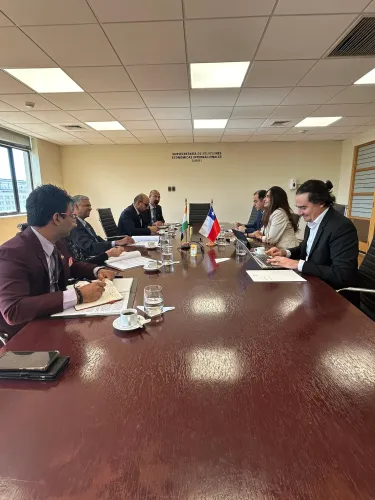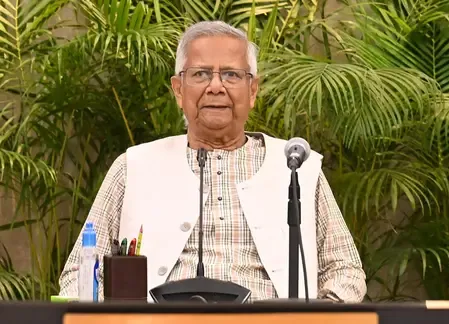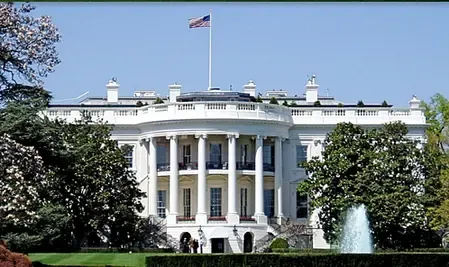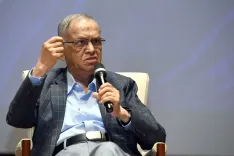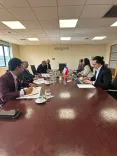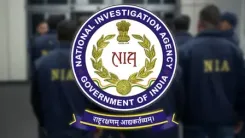Why Did Bangladesh Change the Definition of 'Freedom Fighter' and Remove Mujibur Rahman's Status?
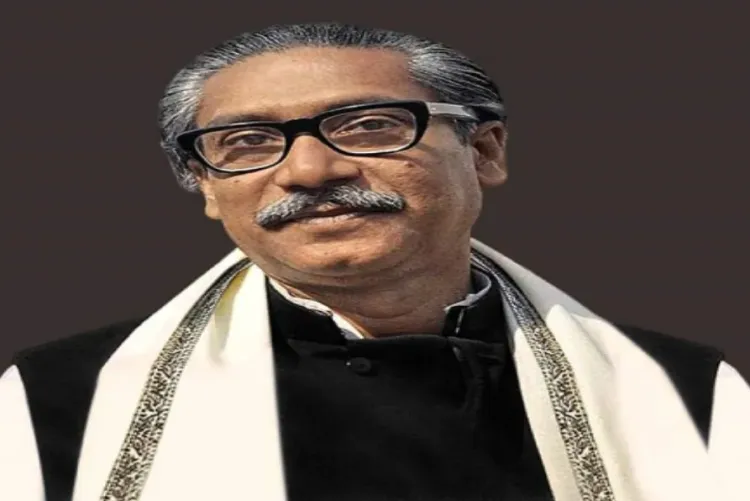
Synopsis
Key Takeaways
- The definition of 'freedom fighter' has been officially changed.
- Bangabandhu Sheikh Mujibur Rahman loses his recognized status.
- Over 400 individuals from the Liberation War are affected.
- The new ordinance categorizes wartime associates differently.
- This decision has sparked significant public debate.
Dhaka, June 4 (NationPress) The interim government of Bangladesh, led by Mohammad Yunus, has introduced a new ordinance that modifies the definition of "freedom fighter" (Bir Muktijoddha). This significant change has resulted in the removal of the status granted to Bangabandhu Sheikh Mujibur Rahman and over 400 other prominent figures from the nation’s 1971 Liberation War.
The ordinance, which amends the National Freedom Fighters Council Act and redefines the term freedom fighters, was issued on Tuesday night. It specifies that all Members of the National Assembly (MNAs) and Members of the Provincial Assembly (MPAs) associated with the wartime provisional government of Bangladesh (Mujibnagar Government) and later recognized as members of the post-war constituent assembly will now be classified as "associates of the Liberation War" instead of "freedom fighters".
Under this new categorization, the associates now include professionals who contributed to the Liberation War from abroad, as well as Bangladeshi citizens who played a crucial role in shaping global perspectives. This includes officials and employees of the Mujibnagar government during the liberation war, as well as physicians, nurses, and other support staff.
Moreover, all artists and crew members of Swadhin Bangla Betar Kendra, along with Bangladeshi journalists both domestically and internationally who actively supported the Liberation War and the Swadhin Bangla Football Team, are now included in this definition, as reported by the leading daily Prothom Alo.
This ordinance will have a direct impact on the status of Bangabandhu Sheikh Mujibur Rahman, former Prime Minister Tajuddin Ahmad, former acting President Syed Nazrul Islam, and more than 400 others who were part of the constituent assembly and had been recognized as freedom fighters until now.
According to the new ordinance, the Liberation War is defined as "The war waged from March 26 to December 16, 1971, to establish equality, human dignity and social justice for the people of Bangladesh as an independent democratic state against the invading and occupying Pakistani armed forces and their collaborators -- the Razakars, Al-Badr, Al-Shams, Muslim League, Jamaat-e-Islami, Nezame-Islam, and the Peace Committee."
"Bir Muktijoddha (Freedom fighter) is someone who, between March 26 and December 16, 1971, either prepared for war and received training within villages across the country or crossed the border into India to enroll in various training camps with the aim of participating in the Liberation War. These individuals actively took part in the war against the occupying and invading Pakistani armed forces and their local collaborators towards achieving Bangladesh's independence," it stated.
The newly issued ordinance has also removed the mention of 'Father of the Nation Bangabandhu Sheikh Mujibur Rahman' and eliminated references to his name from the law.
Researcher on the Liberation War, Afsan Chowdhury, characterized this move as a bureaucratic decision. "Since 1972, we have witnessed that with every new government, a new list of freedom fighters is created. There are personal advantages involved in this," he remarked to The Daily Star. "The public will not accept this. The Liberation War will always remain in the hearts of the general populace," he added.

